- Home
- Arthur Conan Doyle
The Complete Sherlock Holmes, Volume I (Barnes & Noble Classics Series)
The Complete Sherlock Holmes, Volume I (Barnes & Noble Classics Series) Read online
Table of Contents
FROM THE PAGES OF THE COMPLETE SHERLOCK HOLMES, VOLUME I
Title Page
Copyright Page
SIR ARTHUR CONAN DOYLE
THE WORLD OF SIR ARTHUR CONAN DOYLE AND SHERLOCK HOLMES
Introduction
INTRODUCTION TO VOLUME I
A NOTE ON CONVEYANCES
A STUDY IN SCARLET - Part I BEING A REPRINT FROM THE REMINISCENCES OF JOHN H. ...
CHAPTER 1 - Mr. Sherlock Holmes
CHAPTER 2 - The Science of Deduction
CHAPTER 3 - The Lauriston Garden Mystery
CHAPTER 4 - What John Rance Had to Tell
CHAPTER 5 - Our Advertisement Brings a Visitor
CHAPTER 6 - Tobias Gregson Shows What He Can Do
CHAPTER 7 - Light in the Darkness
Part 2 - THE COUNTRY OF THE SAINTS
CHAPTER 1 - On the Great Alkali Plain
CHAPTER 2 - The Flower of Utah
CHAPTER 3 - John Ferrier Talks with the Prophet
CHAPTER 4 - A Flight for Life
CHAPTER 5 - The Avenging Angels
CHAPTER 6 - A Continuation of the Reminiscences of John Watson, M.D.
CHAPTER 7 - The Conclusion
THE SIGN OF FOUR
CHAPTER 1 - The Science of Deduction
CHAPTER 2 - The Statement of the Case
CHAPTER 3 - In Quest of a Solution
CHAPTER 4 - The Story of the Bald-Headed Man
CHAPTER 5 - Tragedy of Pondicherry Lodge
CHAPTER 6 - Sherlock Holmes Gives a Demonstration
CHAPTER 7 - The Episode of the Barrel
CHAPTER 8 - The Baker Street Irregulars
CHAPTER 9 - A Break in the Chain
CHAPTER 10 - The End of the Islander
CHAPTER 11 - The Great Agra Treasure
CHAPTER 12 - The Strange Story of Jonathan Small
ADVENTURES OF SHERLOCK HOLMES
A SCANDAL IN BOHEMIA
1
2
3
THE RED-HEADED LEAGUE
A CASE OF IDENTITY
THE BOSCOMBE VALLEY MYSTERY
THE FIVE ORANGE PIPS
THE MAN WITH THE TWISTED LIP
THE ADVENTURE OF THE BLUE CARBUNCLE
THE ADVENTURE OF THE SPECKLED BAND
THE ADVENTURE OF THE ENGINEER’S THUMB
THE ADVENTURE OF THE NOBLE BACHELOR
THE ADVENTURE OF THE BERYL CORONET
THE ADVENTURE OF THE COPPER BEECHES
MEMOIRS OF SHERLOCK HOLMES
SILVER BLAZE
THE YELLOW FACE
THE STOCK-BROKER’S CLERK
THE “GLORIA SCOTT”
THE MUSGRAVE RITUAL
THE REIGATE PUZZLE
THE CROOKED MAN
THE RESIDENT PATIENT
THE GREEK INTERPRETER
THE NAVAL TREATY
THE FINAL PROBLEM
THE HOUND OF THE BASKERVILLES
CHAPTER 1 - Mr. Sherlock Holmes
CHAPTER 2 - The Curse of the Baskervilles
CHAPTER 3 - The Problem
CHAPTER 4 - Sir Henry Baskerville
CHAPTER 5 - Three Broken Threads
CHAPTER 6 - Baskerville Hall
CHAPTER 7 - The Stapletons of Merripit House
CHAPTER 8 - First Report of Dr. Watson
CHAPTER 9 - Second Report of Dr. Watson
CHAPTER 10 - Extract from the Diary of Dr. Watson
CHAPTER 11 - The Man on the Tor
CHAPTER 12 - Death on the Moor
CHAPTER 13 - Fixing the Nets
CHAPTER 14 - The Hound of the Baskervilles
CHAPTER 15 - A Retrospection
ENDNOTES
COMMENTS & QUESTIONS
FOR FURTHER READING
FROM THE PAGES OF THE COMPLETE SHERLOCK HOLMES, VOLUME I
“Like all other arts, the Science of Deduction and Analysis is one which can only be acquired by long and patient study, nor is life long enough to allow any mortal to attain the highest possible perfection in it. Before turning to those moral and mental aspects of the matter which present the greatest difficulties, let the inquirer begin by mastering more elementary problems.” (A Study in Scarlet, page 17)
“It is a capital mistake to theorize before you have all the evidence. It biases the judgment.” (A Study in Scarlet, page 22)
“When you have eliminated the impossible, whatever remains, however improbable, must be the truth.” (The Sign of Four, page 126)
“It is the unofficial force—the Baker Street irregulars.”
(The Sign of Four, page 145)
“Singularity is almost invariably a clue. The more featureless and commonplace a crime is, the more difficult it is to bring it home.”
(“The Boscombe Valley Mystery,” page 240)
He flicked the horse with his whip, and we dashed away through the endless succession of sombre and deserted streets, which widened gradually, until we were flying across a broad balustraded bridge, with the murky river flowing sluggishly beneath us. Beyond lay another dull wilderness of bricks and mortar, its silence broken only by the heavy, regular footfall of the policeman, or the songs and shouts of some belated party of revellers. A dull wrack was drifting slowly across the sky, and a star or two twinkled dimly here and there through the rifts of the clouds. Holmes drove in silence, with his head sunk upon his breast, and the air of a man who is lost in thought. (“The Man with the Twisted Lip,” page 270)
“My name is Sherlock Holmes. It is my business to know what other people don’t know.” (“The Adventure of the Blue Carbuncle,” page 302)
“Crime is common. Logic is rare.”
(“The Adventure of the Copper Beeches,” page 377)
Like all Holmes’s reasoning the thing seemed simplicity itself when it was once explained. (“The Stock-Broker’s Clerk,” page 433)
“Elementary,” said he. (“The Crooked Man,” page 492)
Through the haze I had a vague vision of Holmes in his dressing-gown coiled up in an armchair with his black clay pipe between his lips.
(The Hound of the Baskervilles, page 592)
Published by Barnes & Noble Books
122 Fifth Avenue
New York, NY 10011
www.barnesandnoble.com/classics
A Study in Scarlet was first published in 1887, The Sign of Four in 1890, and The
Hound of the Baskervilles in 1902. The stories in Adventures of Sherlock
Holmes were first collected and published in 1891, and those in The
Memoirs of Sherlock Holmes in 1892.
Published in 2003 by Barnes & Noble Classics with new Introduction,
Notes, Biography, Chronology, A Note on Conveyances, Comments & Questions,
and For Further Reading.
General Introduction, Introduction to Volume I, A Note on
Conveyances, Notes, and For Further Reading
Copyright © 2003 by Kyle Freeman.
Note on Sir Arthur Conan Doyle, The World of Sir Arthur Conan Doyle
and Sherlock Holmes, and Comments & Questions
Copyright © 2003 by Barnes & Noble, Inc.
All rights reserved. No part of this publication may be reproduced or
transmitted in any form or by any means, electronic or mechanical, including
photocopy, recording, or any information storage and retrieval system,
without the prior written permission of the publisher.
Barnes & Noble Classics and the Barnes & Noble Classics
/> colophon are trademarks of Barnes & Noble, Inc.
The Complete Sherlock Holmes, Volume I
ISBN-13: 978-1-59308-034-1 ISBN-10: 1-59308-034-4
eISBN : 978-1-411-43197-3
LC Control Number 2003102759
Produced and published in conjunction with:
Fine Creative Media, Inc.
322 Eighth Avenue
New York, NY 10001
Michael J. Fine, President and Publisher
Printed in the United States of America
QM
10 12 14 16 18 20 19 17 15 13 11
SIR ARTHUR CONAN DOYLE
Arthur Conan Doyle had many careers—physician, writer of popular fiction and nonfiction, war correspondent, historian, and spiritualist—but it was the creation of his immensely popular Sherlock Holmes that was to be his enduring legacy. The author was born in Edinburgh, Scotland, on May 22, 1859. His mother raised ten children on her husband’s small income; his father’s poor health and heavy drinking made that a daunting task. Despite this adversity, his mother’s willfulness and her exhaustive genealogical research instilled in Arthur a decided sense of purpose.
After early education in Jesuit schools, Conan Doyle enrolled in Edinburgh University, where he earned a medical degree while working part-time to support his family. At the university one of his instructors was Dr. Joseph Bell, who had an uncanny ability to deduce the histories of his patients and who later became a template for Sherlock Holmes. Another teacher, an eccentric Professor Rutherford, inspired the character of Professor George Edward Challenger in The Lost World and other novels and short stories.
Having had a taste of adventure when he served as ship’s physician on a Greenland Sea whaler while still a student, Conan Doyle longed to travel after graduation and so took a position as doctor on a ship en route to West Africa. Returning to England, he set up as a physician in 1882. His practice was small at first, so he had time to do some writing. In 1887 the first Sherlock Holmes story appeared, titled A Study in Scarlet. Over the next few years, Conan Doyle would write a historical novel, open a new ocular practice, explore spiritualism, and send Holmes on further thrilling exploits. A second novel, The Sign of Four, came out in 1890, and starting in 1891 the Holmes stories regularly appeared in the Strand Magazine . Two collections, The Adventures of Sherlock Holmes in 1892 and The Memoirs of Sherlock Holmes in 1893, collected a total of twenty-four of the mysteries. However, Conan Doyle felt that work on the Holmes stories was keeping him from writing on more serious historical topics. To the shock of his readers, in the 1893 story called “The Final Problem” he described the death of his famous sleuth.
In 1894 Conan Doyle published Round the Red Lamp, a collection of short stories with a medical theme; in 1895 The Stark Munro Letters, an autobiographical novel; and in 1896 The Exploits of Brigadier Gerard, set in the Napoleonic Wars. In 1900 he traveled to South Africa in the capacity of war-time physician in Cape Town; his treatise on the Boer War earned him a knighthood in 1902. That same year Conan Doyle published The Hound of the Baskervilles, set before the story that had finished Holmes off in 1893. In 1903 new Holmes stories started to appear in the Strand.
In the coming years, Conan Doyle produced more popular books on a variety of subjects, including three new collections of stories—The Return of Sherlock Holmes (1905), His Last Bow (1917), and The Case Book of Sherlock Holmes (1927)—plus a final Holmes novel, The Valley of Fear (1915). Among many other non-Holmes projects were the three Challenger novels, historical fiction and nonfiction, and several books on spiritualism. He also championed the rights of the wrongly accused, in two separate cases exonerating innocent men.
With the onset of World War I, Conan Doyle served as a war correspondent on several major European battlefields. Following the war, he became a passionate advocate of spiritualism, which he embraced in part to communicate with his eldest son, Kingsley, who had died from influenza aggravated by war wounds. From 1920 until his death, the author wrote, traveled, and lectured to promote his belief in a spiritual life after the death of the body. After a long, demanding journey through Scandinavia, Arthur Conan Doyle suffered a heart attack; he died a few months later, on July 7, 1930, in Sussex.
THE WORLD OF SIR ARTHUR CONAN DOYLE AND SHERLOCK HOLMES
1859 Arthur Conan Doyle is born on May 22 in Edinburgh, Scotland, the second child and eldest son of ten children that will be born to Charles and Mary Foley Doyle. Darwin’s On the Origin of Species by Natural Selection and Charles Dickens’s A Tale of Two Cities are published.
1868 Arthur attends school with the Jesuits in England; later he will re ject Catholicism.
1871 Lewis Carroll’s Through the Looking Glass is published. The first book of George Eliot’s Middlemarch is published. Royal Albert Hall, one of Britain’s most important concert venues, opens in London.
1876 Conan Doyle enrolls in the University of Edinburgh Medical School. As a student, he takes various jobs to help his family, in cluding serving as a ship’s doctor on an Arctic voyage. While at Ed inburgh, he meets Dr. Joseph Bell, whose analytical capabilities amaze his patients and students; Bell later becomes a model for Sherlock Holmes.
1879 “The Mystery of Sasassa Valley,” Conan Doyle’s first story, is pub lished in Chambers’s Journal, an Edinburgh weekly.
1881 Conan Doyle receives his Bachelor of Medicine and Master of Surgery qualifications, and takes a position as ship’s doctor on a steamer en route to West Africa.
1882 He returns to Great Britain and establishes his medical practice.
1885 Conan Doyle receives his M.D. degree. He marries Louise Hawkins; her poor health makes the marriage a difficult one.
1887 A Study in Scarlet, the debut Sherlock Holmes story, is published in Beeton’s Christmas Annual.
1889 Conan Doyle’s short novel The Mystery of Cloomber, which is con cerned with the paranormal, is published, as is Micah Clarke, a popular novel about the Monmouth Rebellion of 1685.
1890 The second Holmes novel, The Sign of Four is published, in Feb ruary in Lippincott’s Monthly Magazine and in October as a book. The story had been commissioned at the same dinner party at which Oscar Wilde was offered a contract for The Picture of Do rian Gray, also published in Lippincott’s this year.
1891 The White Company, a tale of fourteenth-century chivalry, is pub lished. Conan Doyle closes his medical practice to devote more time to his writing career. Stories featuring Sherlock Holmes begin to appear regularly in the Strand Magazine.
1892 The story collection The Adventures of Sherlock Holmes is pub lished.
1893 The year proves stressful, as the author’s father dies and his wife is diagnosed with tuberculosis. Hoping to help Louise’s condition, the family travels to Switzerland, where Conan Doyle visits Re ichenbaeh Falls, the site he chooses for the death of Sherlock Holmes in “The Final Problem”; he intends for this to be the last Holmes story so that he can turn to literary work he considers more important. He joins the British Society for Psychical Re search. The story collection The Memoirs of Sherlock Holmes is published.
1894 Round the Red Lamp, a collection of medical short stories, is pub lished. Conan Doyle makes a three-month speaking tour of the United States (with one stop in Toronto), traveling in the east as far south as Washington D.C., and in the Middle West as far as Chicago; it was his first personal discovery of America.
1895 The Stark Munro Letters, a fictionalized autobiography, is pub lished.
1896 The Exploits of Brigadier Gerard, about a hero in the Napoleonic Wars, is published.
1897 Conan Doyle meets Jean Leckie and falls in love with her; the two maintain a platonic relationship until their marriage in 1907. Brain Stoker’s Dracula is published.
1900 Conan Doyle travels to South Africa to serve as a hospital doctor in the Boer War; he publishes The Great Boer War, an account of that conflict. Oscar Wilde dies.
1901 Queen Victoria dies.
1902 The Hound of the Baskervilles, a Holmes n
ovel set before “The Final Problem” (1893), is published. Conan Doyle’s work in a field hospital and his treatise on the Boer War, The War in South Africa: Its Cause and Conduct, earn him a knighthood.
1903 New Holmes stories begin to appear in the Strand Magazine.
1905 The story collection The Return of Sherlock Holmes is published.
1906 Louise dies of tuberculosis at age forty-nine. Conan Doyle begins investigations that will exonerate George Edalji, a man who had been wrongfully accused and sent to jail. Sir Nigel, a companion piece to The White Company (1891), is published.
1907 Conan Doyle marries Jean Leckie. Through the Magic Door, about the importance of books in his life, is published.
1909 The Crime of the Congo, about Belgian atrocities in the Congo, is published.
1910 Conan Doyle investigates the case of Oscar Slater, another wrong fully accused man. E. M. Forster’s Howards End is published.
1912 The Lost World is published; the first of a series of science fiction novels featuring the skeptical Professor George Edward Chal lenger, it is the best known of the author’s non-Holmes stories.
1913 The second Challenger novel, The Poison Belt, is published.
1914 Conan Doyle visits New York City and Canada. World War I be gins. James Joyce’s Dubliners is published.
1915 The final Holmes novel, The Valley of Fear, is published.
1916 Conan Doyle announces his belief in spiritualism, which holds that the spirit has a life after the death of the body; he will become one of its best-known advocates. James Joyce’s Portrait of the Artist as a Young Man is published.

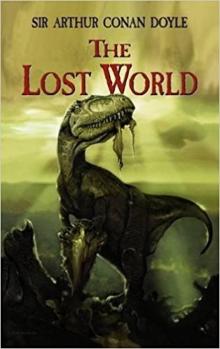 The Lost World
The Lost World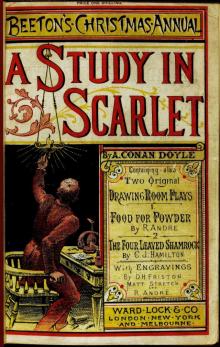 A Study in Scarlet
A Study in Scarlet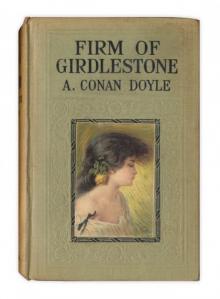 The Firm of Girdlestone
The Firm of Girdlestone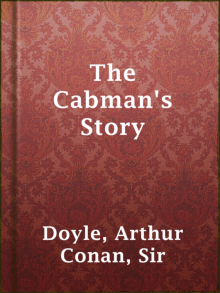 The Cabman's Story
The Cabman's Story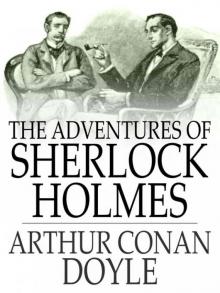 The Adventures of Sherlock Holmes
The Adventures of Sherlock Holmes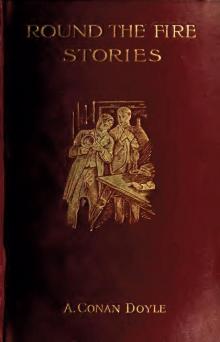 Round the Fire Stories
Round the Fire Stories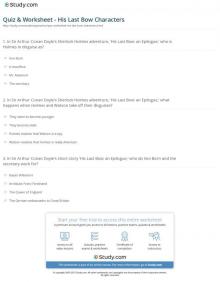 His Last Bow: An Epilogue of Sherlock Holmes
His Last Bow: An Epilogue of Sherlock Holmes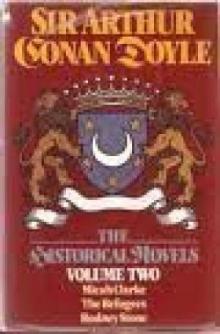 Micah Clarke
Micah Clarke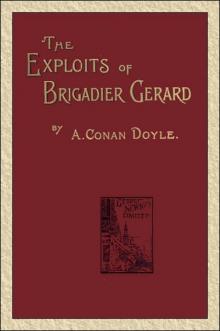 The Exploits of Brigadier Gerard
The Exploits of Brigadier Gerard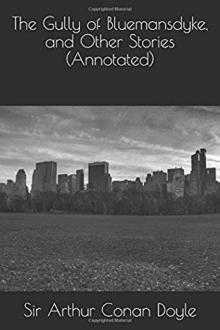 The Gully of Bluemansdyke, and Other stories
The Gully of Bluemansdyke, and Other stories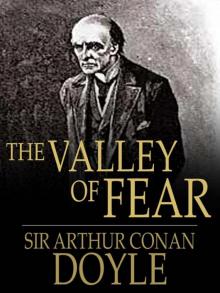 The Valley of Fear
The Valley of Fear The Last of the Legions and Other Tales of Long Ago
The Last of the Legions and Other Tales of Long Ago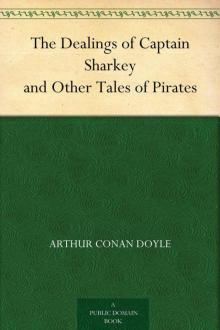 The Dealings of Captain Sharkey, and Other Tales of Pirates
The Dealings of Captain Sharkey, and Other Tales of Pirates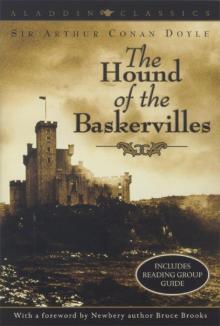 The Hound of the Baskervilles
The Hound of the Baskervilles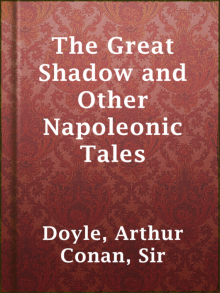 The Great Shadow and Other Napoleonic Tales
The Great Shadow and Other Napoleonic Tales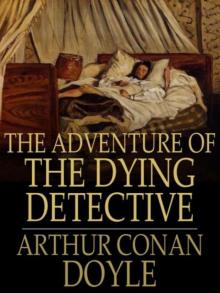 The Adventure of the Dying Detective
The Adventure of the Dying Detective The Man from Archangel, and Other Tales of Adventure
The Man from Archangel, and Other Tales of Adventure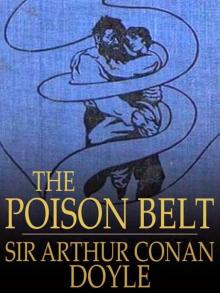 The Poison Belt
The Poison Belt The Last Galley; Impressions and Tales
The Last Galley; Impressions and Tales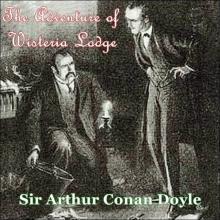 The Adventure of Wisteria Lodge
The Adventure of Wisteria Lodge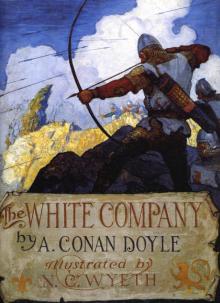 The White Company
The White Company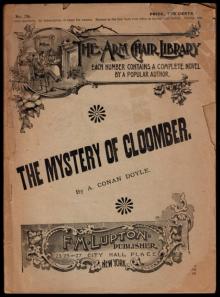 The Mystery of Cloomber
The Mystery of Cloomber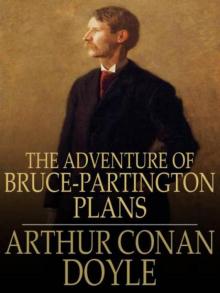 The Adventure of the Bruce-Partington Plans
The Adventure of the Bruce-Partington Plans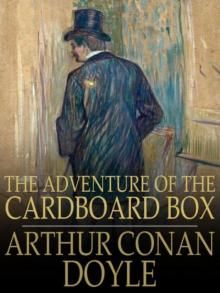 The Adventure of the Cardboard Box
The Adventure of the Cardboard Box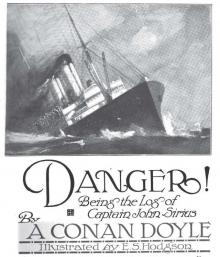 Danger! and Other Stories
Danger! and Other Stories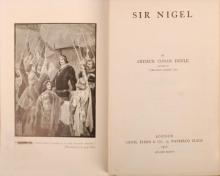 Sir Nigel
Sir Nigel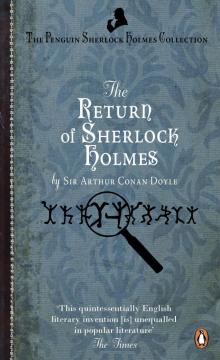 The Return of Sherlock Holmes
The Return of Sherlock Holmes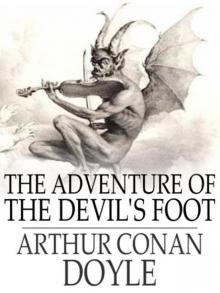 The Adventure of the Devil's Foot
The Adventure of the Devil's Foot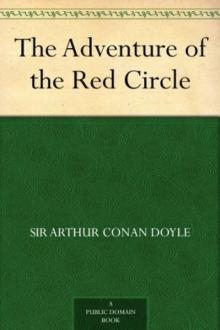 The Adventure of the Red Circle
The Adventure of the Red Circle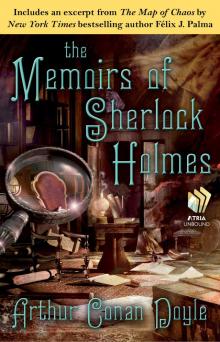 The Memoirs of Sherlock Holmes
The Memoirs of Sherlock Holmes The Adventure of the Yellow Face
The Adventure of the Yellow Face The Adventure of the Norwood Builder
The Adventure of the Norwood Builder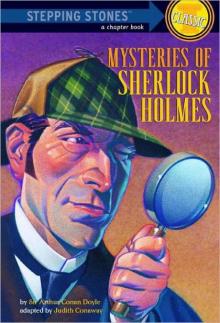 Mysteries of Sherlock Holmes
Mysteries of Sherlock Holmes The Adventure of the Missing Three-Quarter
The Adventure of the Missing Three-Quarter The Adventure of the Final Problem
The Adventure of the Final Problem A Scandal in Bohemia
A Scandal in Bohemia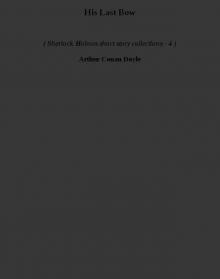 His Last Bow shssc-4
His Last Bow shssc-4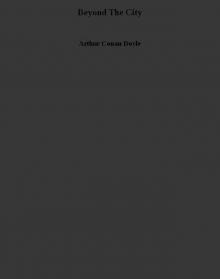 Beyond The City
Beyond The City The Adventure of the Gloria Scott
The Adventure of the Gloria Scott The Parasite
The Parasite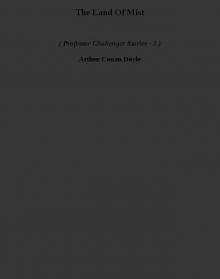 The Land Of Mist pcs-3
The Land Of Mist pcs-3 The Adventure of the Musgrave Ritual
The Adventure of the Musgrave Ritual The Complete Sherlock Holmes, Volume I (Barnes & Noble Classics Series)
The Complete Sherlock Holmes, Volume I (Barnes & Noble Classics Series) The Adventure of the Stockbroker's Clerk
The Adventure of the Stockbroker's Clerk The Adventure of the Copper Beeches
The Adventure of the Copper Beeches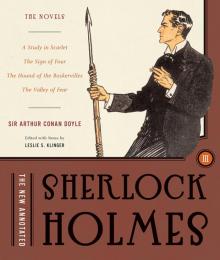 The New Annotated Sherlock Holmes
The New Annotated Sherlock Holmes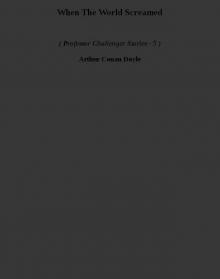 When The World Screamed pcs-5
When The World Screamed pcs-5 The Adventure of the Six Napoleons
The Adventure of the Six Napoleons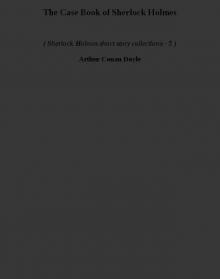 The Case Book of Sherlock Holmes shssc-5
The Case Book of Sherlock Holmes shssc-5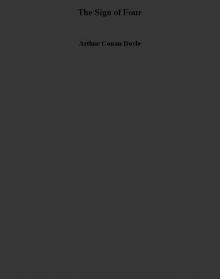 The Sign of Four
The Sign of Four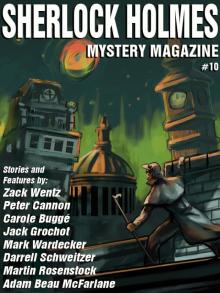 Sherlock Holmes Mystery Magazine #10
Sherlock Holmes Mystery Magazine #10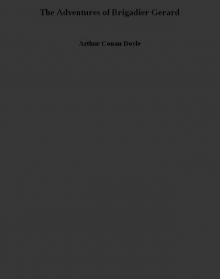 The Adventures of Brigadier Gerard
The Adventures of Brigadier Gerard The Adventure of the Second Stain
The Adventure of the Second Stain The Adventure of the Engineer's Thumb
The Adventure of the Engineer's Thumb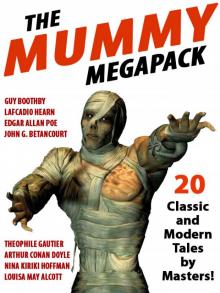 The Mummy Megapack
The Mummy Megapack The Disintegration Machine pcs-4
The Disintegration Machine pcs-4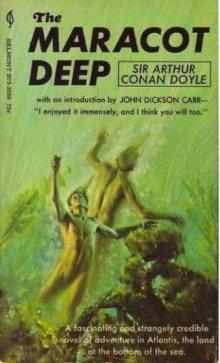 The Maracot Deep
The Maracot Deep The Five Orange Pips
The Five Orange Pips The Adventure of the Crooked Man
The Adventure of the Crooked Man The Adventure of the Blue Carbuncle
The Adventure of the Blue Carbuncle The Adventure of Silver Blaze
The Adventure of Silver Blaze The Adventure of the Solitary Cyclist
The Adventure of the Solitary Cyclist The Adventure of the Naval Treaty
The Adventure of the Naval Treaty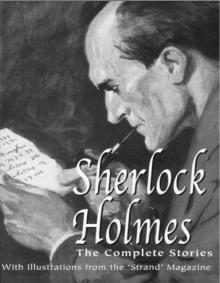 Sherlock Holmes. The Complete Stories
Sherlock Holmes. The Complete Stories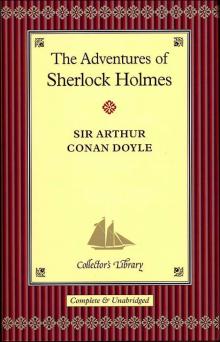 The Adventures of Sherlock Holmes (sherlock holmes)
The Adventures of Sherlock Holmes (sherlock holmes) The Adventure of the Empty House
The Adventure of the Empty House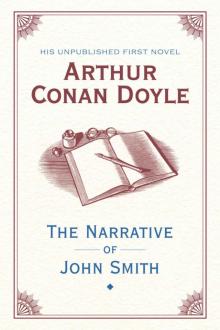 The Narrative of John Smith
The Narrative of John Smith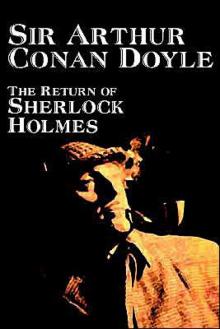 The Return of Sherlock Holmes (sherlock holmes)
The Return of Sherlock Holmes (sherlock holmes) The New Revelation
The New Revelation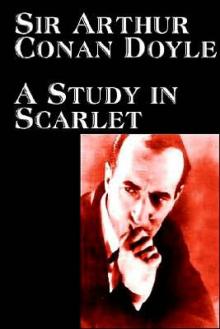 A Study in Scarlet (sherlock holmes)
A Study in Scarlet (sherlock holmes) The Vital Message
The Vital Message Sherlock Holmes Complete Collection
Sherlock Holmes Complete Collection Round the Red Lamp
Round the Red Lamp The Boscombe Valley Mystery
The Boscombe Valley Mystery The Adventure of the Beryl Coronet
The Adventure of the Beryl Coronet The Refugees
The Refugees The Adventure of the Three Students.
The Adventure of the Three Students.